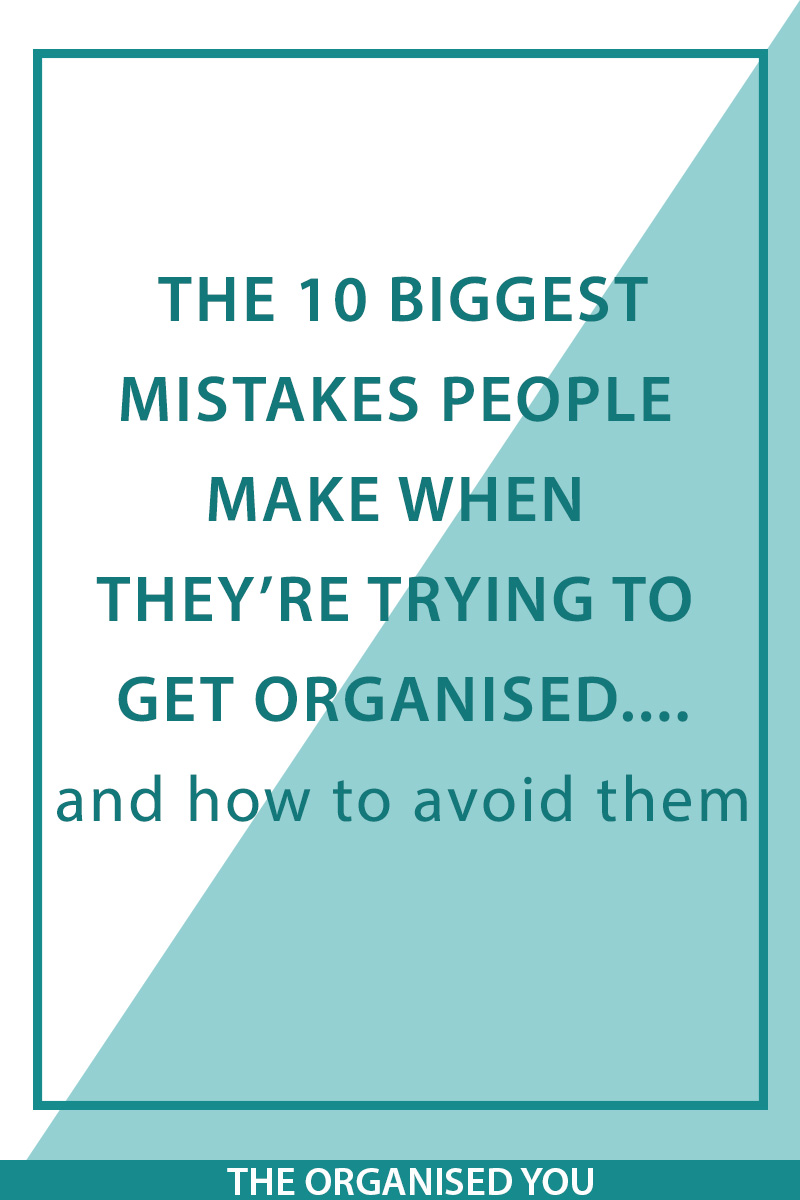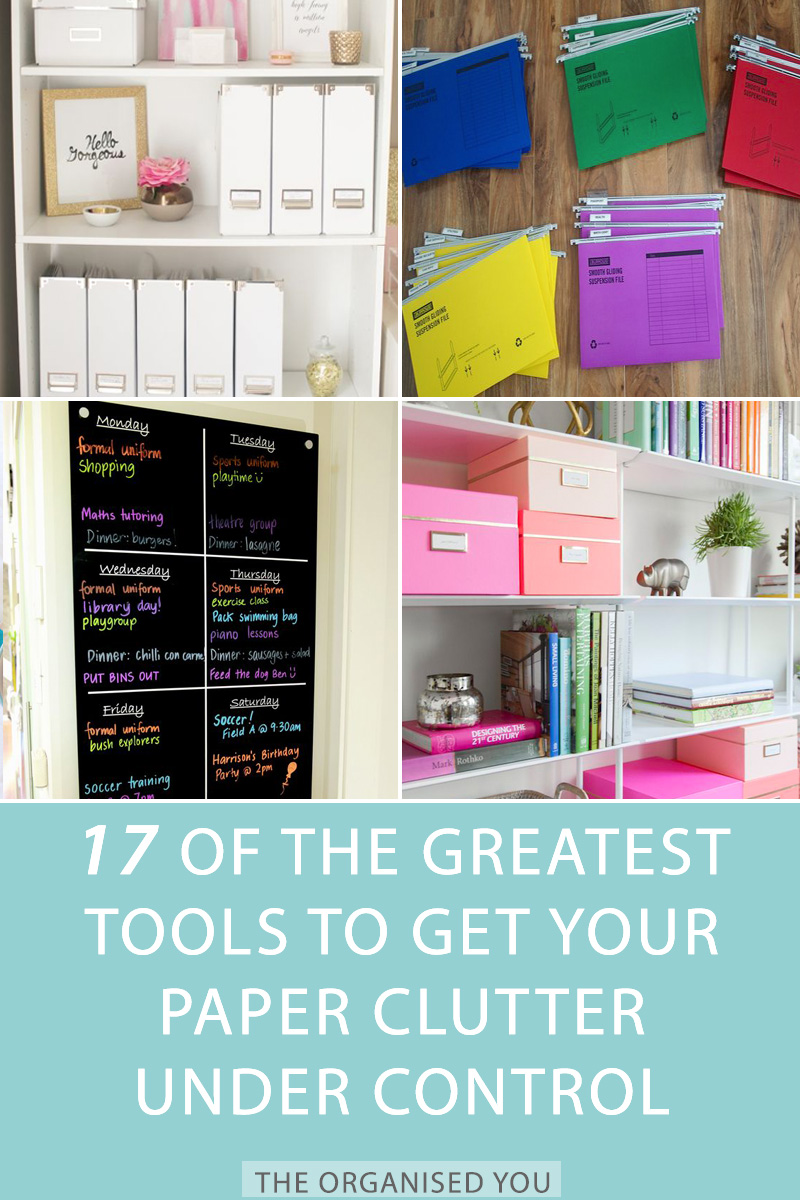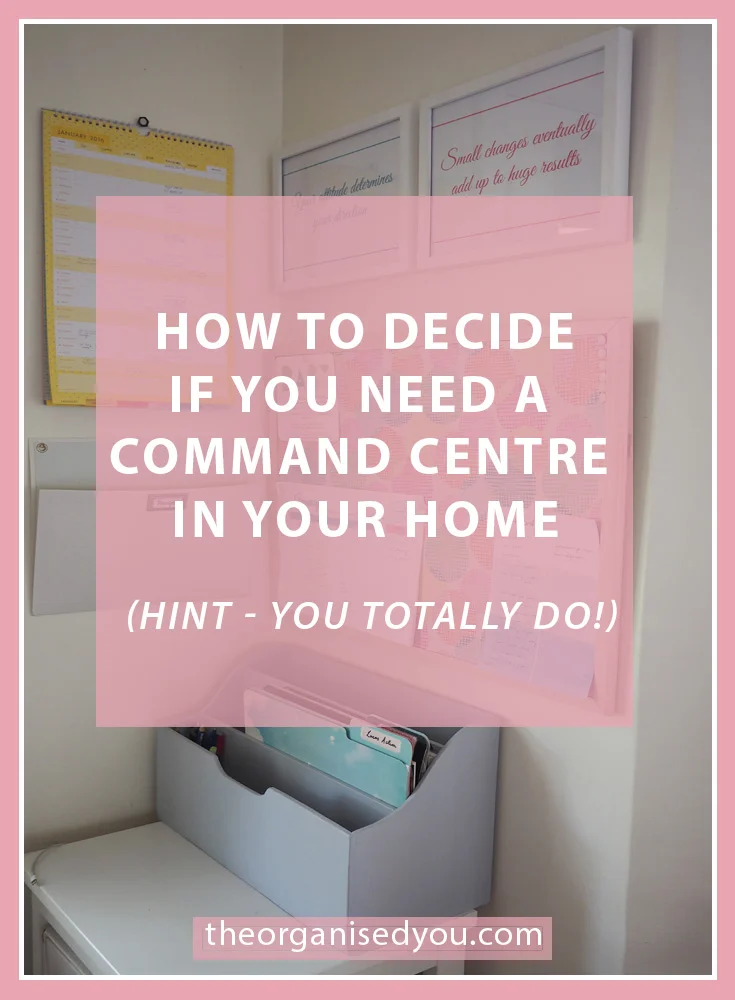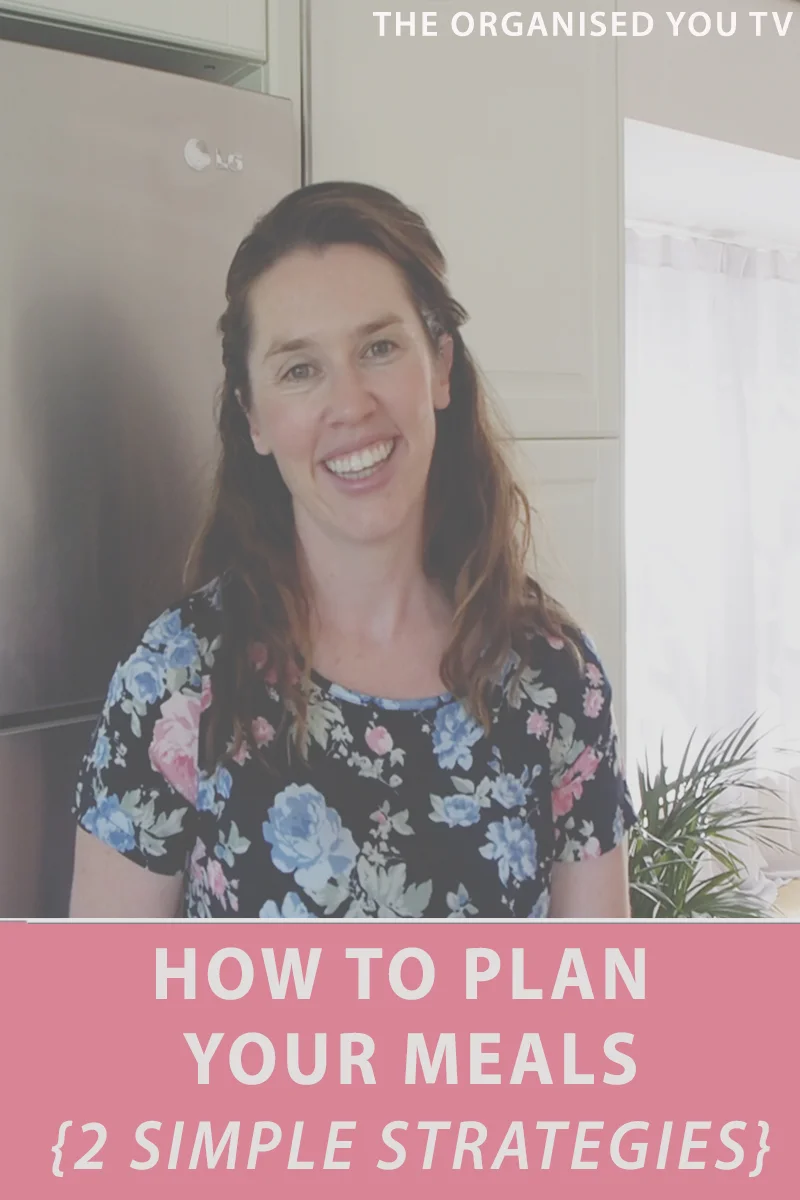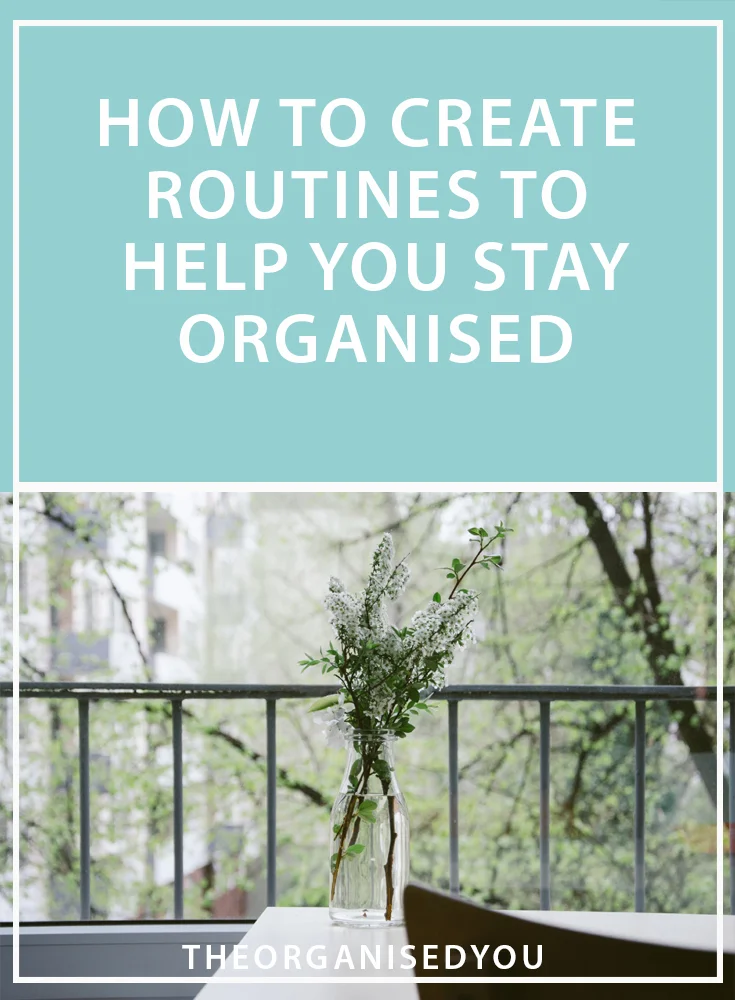We all have good intentions when it comes to getting organised. But sometimes, the wrong practices and strategies mean that it either doesn’t turn out out the way you were envisaging or it all gets too hard and overwhelming.
In this post, I’m sharing the biggest mistakes that people make when it comes to decluttering and organising that you may be able to relate to. But don’t worry, I’m also showing you how simple it can be to fix these mistakes with the right tools, strategies and help. Let's dive in!
Mistake Number 1 | You didn’t come up with a plan
Any organising project - whether it’s cleaning out your fridge, tackling the wardrobe, or decluttering the entire garage - should be approached with a goals-focused plan. If you don’t have a clear plan for how you’re going to change the space, then you’re likely to come across some problems.
Either you won’t bother following the whole project through to completion; you'll be unhappy with how it turns out because you didn't address and come up with solutions for existing problems; you've purchased products you don’t actually need; or you removed some systems that were actually working well. A plan with clear goals is so important!
The Fix: Before launching in, you need to assess the following:
what’s currently working in the space - you don’t have to change everything!
what’s not working
your wish list for the space (in terms of how it will function effectively) - make it goal-related so you have a clear plan to work towards
any items you think you need to purchase (although this purchasing should not be done until after the project is complete - see mistake no 2!)
Need help creating a plan? My new course ‘Chaos to Calm’ provides step-by-step instructions, videos and worksheets to help you create a structured plan, set goals and schedule your time.
Mistake Number 2 | You went out and bought all the things before decluttering
Baskets, boxes, tubs, file folders, label-makers, dividers, shelving units - there are a million different products out there that claim they can get you organised! But the thing is, just because you purchase these products, that doesn’t automatically make you organised.
The mistake that many people make in wanting to get their home functioning better, is to go out and buy loads of products before they’ve actually done the decluttering work. Oftentimes, those products aren’t actually necessary, or don’t fit in the space properly. Or you now find yourself with a heap of products that need to be ‘filled’, which leads to more clutter! A product is not necessarily going to fix the problem.
The Fix: Come up with your plan, and complete the decluttering of your space first. This will allow you to assess whether or not you actually need to purchase anything. In many instances, items can be re-purposed from around the home, or you may find that you only need a few products to make the space function better. And most importantly, if you are buying something, then measure the space to ensure it will fit!
Mistake Number 3 | You had unrealistic expectations of how much you could get done in one session or one day
Thinking that you’ll be able to tackle the decluttering and organising of an entire room in half an hour, or your whole house in one day, is just unrealistic. Taking on too big of a task in a small period of time will only lead to you feeling burnt-out and discouraged. You may even start to think that getting organised is just too time-consuming, and not worth the effort.
The Fix: The truth is, decluttering and organising sessions take time. They are tasks you may need to come back to over the course of a day, weekend, week or even month, depending on the time you have available. Rushing through it will lead to a job half-done that you likely won't feel satisfied with.
It’s important that you give yourself the right amount of time to make tough decisions (with breaks throughout). Otherwise you’re going to end up with the same mess with which you started. Learning how to manage, structure and schedule your time during the decluttering process is integral for a good outcome (which are the skills that I’ll teach you in Chaos to Calm!)
Mistake Number 4 | You didn’t finish the job completely
The organising process can involve a few stages, particularly if you’re doing lots of decluttering. There’s the actual sorting to work out what you’re going to keep, recycle, get rid of or donate. You may want to sell items that are of value rather than donating them.
After that, you actually have to follow up with sending all these items off to their new homes i.e. a charity store, returning to a friend or even arranging for a removal truck. You then need to put all your 'keep' items back in place in a more organised way!
Because there are quite a few steps to this process, this end part can prove to be the hardest, and the piles often don't get dealt with for a long time.
The Fix: You must follow through with the entire organising process. It is such a great feeling to finish a decluttering project, but an even better one to actually get rid of all those items from your home to leave you with a more calm and open feel to your space.
It’ll make all that effort completely worth it, especially if you’ve completed the hard stage of decluttering already! It's all about knowing the best places to send your belongings and doing it straight away.
Mistake Number 5 | You expected everyone else to be able to follow your system
I often hear people complain about the fact that they’d like to be more organised, but their family either:
is not on board with it
can't or won't follow the system properly
refuses to help out
And believe me, it’s something I experience at times too, especially with my kids! However, the issue often lies in the fact that how the system actually works has not been properly explained.
For example, let's say you set up a new paperwork system, whereby different pieces of information need to be sorted, filed in various categories, and then moved to their ‘home’ i.e. a memory box or filing cabinet. This is quite a complex system. If you don’t explain exactly how your system works to your partner or family members, then it will inevitably fail, because they may not understand what goes where and why.
The Fix: It’s so important when you set up a new system to work out who will be using it so they know how it operates. You need to sit your family members down and explain it thoroughly to them - and this may include explaining it to your kids!
This process allows you to double check to see if they’ve understood. Get them to repeat information back to you about what belongs where, and ask if they have any questions. After that, there should be an expectation that the system will be followed more effectively.
Mistake Number 6 | You weren’t flexible with your organising approach
Organising is often referred to as ‘a journey, not a destination’. And for good reason - your life will always be changing, meaning that the routines, schedules, needs and wants of your family will constantly change too. This means that you may not always get things right the first time, or new systems may work well at first, but over time they become less reliable.
The Fix: Organising is all about being flexible, and learning to accept that things don't always have to be perfect in order to be functional and helpful. Adapting to the changing needs of you and your family members, and re-assessing when things stop working so well, is a vital step in the organising journey.
Mistake No 7 | You cleaned rather than decluttered
There is a misconception that cleaning and decluttering are the same thing, when in actual fact there is a very clear distinction between the two. Each is a separate task that requires different actions and thought processes.
Organising refers to the actual decluttering and creation of systems to help you locate items at any time in the future. Cleaning usually involves the use of cleaning products such as a mop, vacuum, duster, cleaning cloths.
The Fix: Although you may need to do some cleaning before, during and after the organising process, it's important to realise the distinct difference between these two activities. Avoid the temptation to spend all your organising time 'tidying' and cleaning the space, as this is not actually getting you closer to your organising goals. Although, the good news is that once your home is organised, it will be much easier to clean!
Mistake Number 8 | You have a 'maybe' pile, a junk drawer or a 'miscellaneous' cupboard
There's no doubting that the organising process is full of difficult decisions - what to keep, what to give away, what to throw out. But if you create a 'maybe' pile, that gives you an excuse to avoid those harder decisions and encourages you to procrastinate further.
The same applies to the junk drawer and the 'miscellaneous' cupboard - these spaces are inevitable clutter magnets that are only going to cause you frustration when you go to find what you need. When things don't have their own 'home', they're going to be difficult to find and access.
The Fix: Although it is difficult, you need to go into the decluttering process with an open and decisive attitude to what you'll be keeping and getting rid of.
Having someone else there to give you honest opinions is a great idea (especially when decluttering your wardrobe!). If you really can't make a decision about a certain item, then place it in a box and store it away for 3 months. If you find that you need it during this time, then you can keep it. But if you don't miss it, then it's definitely time to let it go!
Mistake Number 9 | You let overwhelm take over
Feeling overwhelmed is a huge stress factor that can prevent people taking those first steps to taking back control of their disorganised home. Trying to decide on the best options for you and your family, as well as which systems to set up and how to do it, can leave you feeling paralyzed.
The Fix: Just choose something. Choose a space to start with - the one that’s bothering you the most. Choose some goals for this space. Choose a time to start working on it and a plan for how you want it to look and feel. And then just try it.
It doesn’t have to be perfect! And the great thing about organising is that you can always make tweaks and adjustments along the way to suit your changing needs.
Mistake Number 10 | You tried to do it alone
There’s no doubt that decluttering a space means being forced to make lots of decisions. Which items will you get rid of? Which things should you keep? How could things be stored differently to create more storage space? How should you set up a space to create easier access and increased functionality? Sometimes all those decisions can leave you feeling paralyzed and overwhelmed, especially if you’re trying to do it alone.


